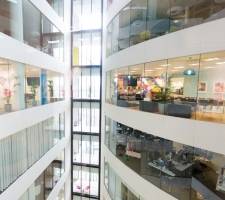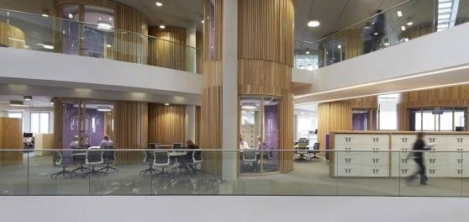January 26, 2015
Flexible working improves the quality and quantity of sleep
Giving employees more control over their work schedules may help curb sleep deficiency, according to health researchers in the US. A team led by Orfeu M. Buxton, associate professor of bio-behavioural health at Penn State University set out to explore the question of whether family-friendly work practices and other forms of flexible working had any impact on the quantity and quality of sleep. They results are published this month in the journal Sleep Health. Of the nearly 500 employees from an IT company surveyed over a period of a year, the researchers found that employees who were able to enjoy more control over their working day also enjoyed an average of eight minutes more sleep per night than those with rigid working hours. The research also found that participants’ perceptions of their sleep quality also improved.
























January 22, 2015
How can we leave the open plan behind while desktop work endures?
by Sara Bean • Comment, Flexible working, Technology, Workplace design
(more…)